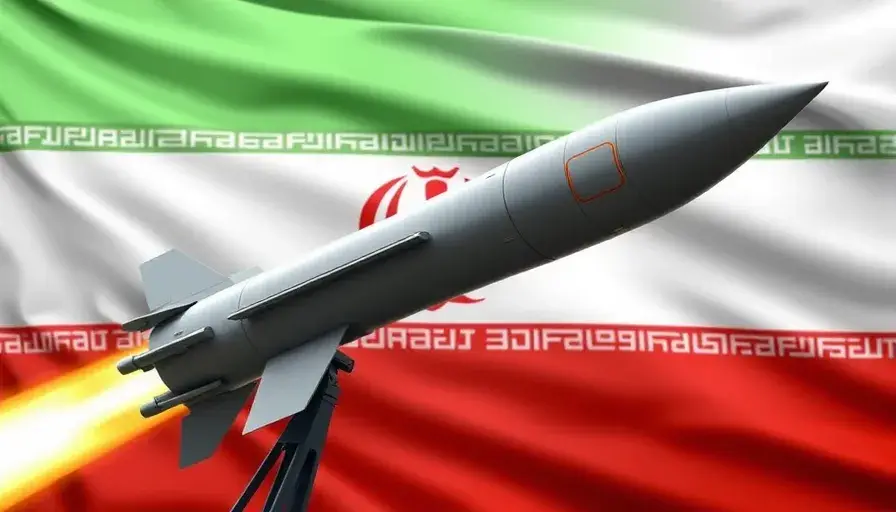Iran's Nuclear Ambitions: Diplomatic Bargaining Chip or Geopolitical Challenge?

Will a new country soon join the nuclear club?
For many years, Iran’s nuclear program has been a key issue of international tension. Amid the recent escalation in the Middle East and growing concerns about Tehran's nuclear capabilities, the world is now wondering whether Iran will cross the line and build nuclear weapons. Despite having advanced nuclear technology, Iran has so far refrained from developing nuclear weapons, creating a complex picture of political maneuvering, regional dynamics, and global security risks.
The Technical Aspect: How Close is Iran?
According to Western intelligence, Iran is approaching the capability to develop a nuclear warhead. The International Atomic Energy Agency (IAEA) estimates that Iran currently possesses around 5.7 tons of uranium-235, with significant quantities enriched to 20% and even 60%. For nuclear weapons, uranium must be enriched to 90%, a process that could take only a few weeks if Tehran decides to proceed.
However, creating a functional nuclear warhead requires more than just uranium enrichment. It also demands the development of complex delivery systems and the final stages of weaponization technology, which could extend the timeline to approximately six months. Iran has shown progress in missile technology, particularly under the guise of developing a space program. The potential overlap between space rocket technology and intercontinental ballistic missiles (ICBMs) is raising serious concerns. Iran’s partnership with russia, and to some extent with China, accelerates this development, allowing Tehran to bypass some of the restrictions that were previously imposed by sanctions.
Why Hasn’t Iran Developed Nuclear Weapons Yet?
Despite its technical capabilities, Iran has hesitated to take the final step toward developing nuclear weapons. There are several theories explaining this restraint. First, Iran benefits from its status as a "threshold" country, meaning it could develop nuclear weapons at any moment but has not yet done so. This ambiguity gives Tehran a strategic advantage in negotiations, making it a more influential player without crossing the nuclear threshold while still gaining political concessions as a nuclear-capable country.
Political considerations also play a critical role. Iranian President Masoud Pezeshkian has stated his government’s willingness to engage in dialogue with Western nations, signaling an openness to diplomatic solutions. However, this position should be viewed cautiously, as it may be a tactical move to delay sanctions while preserving the option for Iran to pursue its nuclear program at a convenient time.
Regional Implications: How This Affects Israel, Saudi Arabia, and Neighboring Countries
One of the biggest concerns is how other Middle Eastern countries, particularly Israel and Saudi Arabia, would respond to a nuclear-armed Iran. Israel, though it neither confirms nor denies possessing nuclear weapons, would likely be forced to rethink its military strategy in the region. Meanwhile, Saudi Arabia has also expressed nuclear ambitions, which could trigger a regional arms race, further destabilizing the Middle East.
Iran-backed Hezbollah, which holds a vast arsenal of modern weaponry, adds another layer of complexity. If Tehran decides to develop nuclear weapons, it could embolden Hezbollah and other proxy groups, exacerbating conflicts throughout the region, from Lebanon to Yemen.
The russian and Chinese Factor: Accelerating Iran’s Nuclear Capabilities
Iran’s growing cooperation with russia and China is another key element in the nuclear equation. In exchange for Iran’s support in the war against Ukraine, russia has reportedly been providing nuclear technologies and other resources that bolster Tehran's military capabilities. This partnership could tip the scales in favor of Iran’s nuclear ambitions, as moscow seeks to counter U.S. influence in the Middle East while strengthening its ties with Tehran.
China, although less overt in its support of Iran, also plays a significant role. Economic and technological exchanges between Beijing and Tehran, particularly in the field of satellite technology, contribute to Iran’s progress in developing missile delivery systems.
Diplomatic Stalemate: Can Iran Be Stopped?
The international community remains divided on how to approach Iran. Sanctions from the U.S. and Europe previously slowed Iran's progress, but recent developments suggest that Tehran is accelerating its efforts. Some experts believe that a new round of negotiations could delay Iran’s nuclear ambitions, while others argue that Tehran is merely using diplomacy as a smokescreen to buy time.
The central issue is the lack of a unified approach to preventing Iran from acquiring nuclear weapons without risking a broader conflict. Military action is on the table, but it risks triggering a catastrophic war in the Middle East. Diplomatic efforts, while desirable, may be too slow to prevent Iran from reaching its nuclear goals.
Conclusion
The world stands at a crossroads in its approach to Iran. Tehran's nuclear ambitions have the potential to reshape not only the Middle East but also the global security architecture. Although Iran has not yet developed a nuclear bomb, the technical expertise, political will, and strategic partnerships are already in place. The only question is whether the international community can offer a viable alternative that convinces Iran to permanently halt its program.
The stakes could not be higher. A nuclear-armed Iran would not only destabilize the region but also undermine the global non-proliferation regime, encouraging other countries to pursue nuclear capabilities. Time is running out, and decisive action—whether diplomatic, economic, or military—must be taken before it’s too late.









